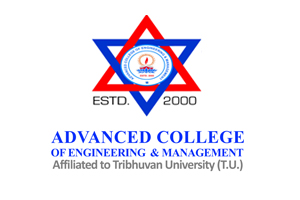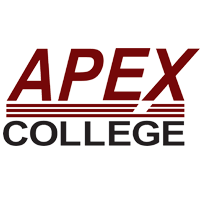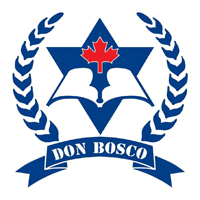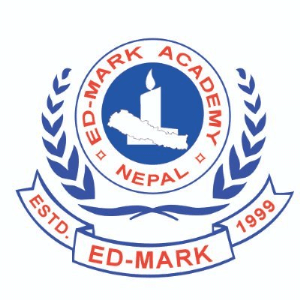Overview
Kantipur College of Management and Information Technology (KCMIT) is a Tribhuvan University (TU)–affiliated institution in Mid-Baneshwor, Basuki Marg, Kathmandu. It runs undergraduate programs in Bachelor of Information Technology Management (BITM), Bachelor of Business Administration (BBA) under TU’s Faculty of Management, and Bachelor of Computer Application (BCA) under TU’s Faculty of Humanities and Social Sciences (FoHSS).
KCMIT positions itself as a student-focused campus with academic support, IT infrastructure, and structured learning pathways aligned with TU curricula and examination systems. The college is centrally located, making it accessible to students across the Kathmandu Valley.
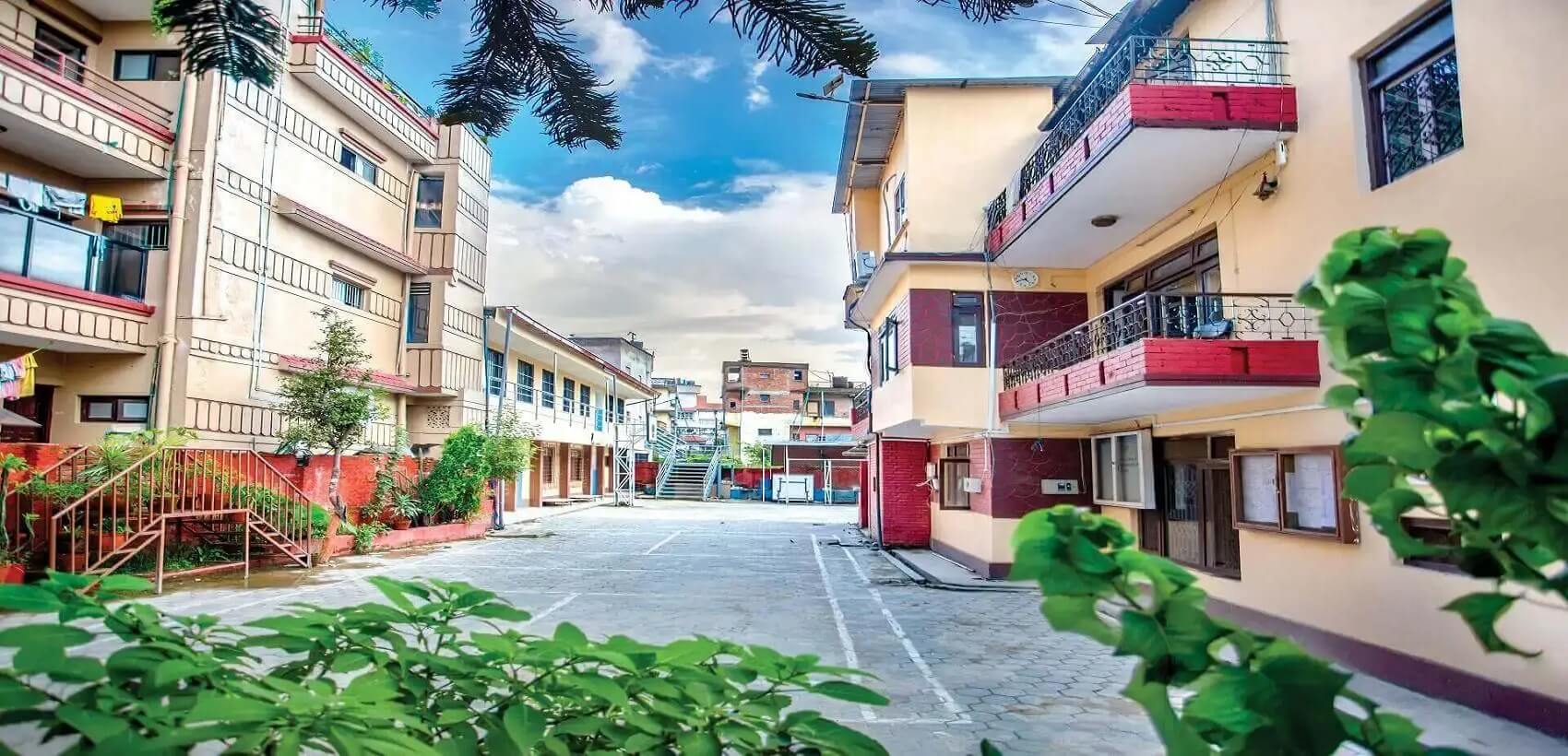
Quick Highlights
-
Affiliation: Tribhuvan University (TU).
-
Location: Basuki Marg, Mid-Baneshwor, Kathmandu.
-
Programs: BITM, BBA, BCA.
-
Entry tests: CMAT for FoM programs as per TU; BCA entrance as per TU FoHSS.
-
Academic system: TU semester structure; TU-prescribed evaluation.
-
Facilities: Library, computer labs, internet access, student clubs, ECA.
Academic Programs Offered
BITM (Bachelor of Information Technology Management) — TU (FoM)
BITM blends computing with management. Students progress through programming, database and network fundamentals, information systems, and core business subjects such as accounting, marketing, and operations. TU’s official framework identifies BITM as a four-year, eight-semester program of the Faculty of Management.
Study focus (TU-aligned):
-
Programming foundations; data structures; web and Java tracks
-
Database management; information systems; computer security
-
Networking and internetworking; software engineering fundamentals
-
Business communication; accounting; finance; organizational behavior; strategy
-
Capstone components such as projects and internships
Graduate pathways: Entry roles across tech-enabled business functions (systems analysis, junior developer, tech support for business systems, MIS roles) and management-adjacent roles that require comfort with data and software practices. Titles vary by employer and current market demand.
BBA (Bachelor of Business Administration) — TU (FoM)
The BBA builds a foundation in management with attention to the Nepalese business context. Core study tracks include accounting, finance, marketing, operations, HRM, and business environment, alongside research methods and entrepreneurship. Teaching remains aligned with TU FoM’s semester and evaluation norms.
Graduate pathways: Banking and microfinance operations, sales and marketing, HR coordination, entry-level finance roles, and administration in private, development, and public organizations—depending on electives and project work.
BCA (Bachelor of Computer Application) — TU (FoHSS)
BCA at TU sits under the Faculty of Humanities and Social Sciences. The degree combines software development, systems analysis, web technologies, networking basics, and project/internship components. FoHSS hosts the official BCA program and syllabus pages.
Study focus (TU-aligned):
-
Programming (C, Java or similar per TU cycle), web technology, operating systems
-
Database systems, software engineering, scripting, networking basics
-
MIS/e-business concepts, applied projects, internship components
-
Communication, quantitative courses, and social-science context as designed by FoHSS
Graduate pathways: Junior developer, web/app developer, QA/testing, support engineer, or IT support roles; progression depends on depth in projects and internships.
Admission Process
KCMIT follows Tribhuvan University’s policies for program-specific entry tests and merit lists.
For BITM and BBA (FoM)
-
Entry test: CMAT administered under TU Faculty of Management procedures. Candidates must follow FoM’s call for applications, sit the test, and meet college/program merit criteria.
-
Application steps (typical):
-
Fill the college application and submit required documents (SEE/SLC, +2/PCL transcripts, ID/citizenship copy, photos).
-
Register for CMAT as per FoM notice.
-
Appear for the test; keep the admit card and ID.
-
If shortlisted, attend interview/counseling as notified.
-
Complete admission formalities within the stated window.
-
-
Merit basis: TU CMAT score + college criteria (and interview where applicable).
Where to check: FoM CMAT portal and relevant notices.
For BCA (FoHSS)
-
Entry test: TU FoHSS conducts entrance and sets the selection process for BCA. Applicants should follow FoHSS BCA notifications and the admitting college’s schedule.
-
Application steps (typical):
-
File KCMIT’s BCA application with required documents.
-
Register for BCA entrance under FoHSS when announced.
-
Sit for the test; submit score/merit information to the college as guided.
-
Complete admission steps on selection.
-
Documents (common set):
-
Academic: SEE/SLC, +2/PCL certificates and transcripts
-
ID: Citizenship or passport copy
-
Other: Character/conduct certificate; passport-size photos
Who can apply (typical TU criteria):
-
+2/PCL or equivalent from a recognized board with minimum division/CGPA as per the relevant faculty rule for that year. Confirm the current CGPA/grade thresholds at the time of application.
Teaching Faculty and Learning Methodology
KCMIT’s teaching follows TU syllabi with an applied classroom rhythm. Students typically experience:
-
Interactive lectures aligned with module plans
-
Media-aided presentations for concepts and frameworks
-
Practical/lab sessions (especially for BITM/BCA courses)
-
Group work and case discussions
-
Project assignments and term papers
-
Student-led seminars and final-year projects/internships
Faculty composition normally includes subject specialists in management, computing, and quantitative methods. Industry-experienced teachers often guide projects and internships, reinforcing links between classroom tasks and workplace practice.
Infrastructure and Learning Facilities
-
Library: Course texts and reference materials across management and computing. Past notes mention a collection near 10,000 items. Quiet study zones support individual and group work.
-
Computer labs: Multiple labs with current OS builds, development tools, and internet access for lab work, assignments, and projects.
-
Internet access: On-campus connectivity for research and coursework, plus a separate internet room.
-
Classrooms: Lecture spaces with projection/AV.
-
Student support: Academic counseling, exam guidance, and program office assistance during admission/registration windows.
Facilities evolve; prospective students should request a lab/library walkthrough before enrollment.
Student Life and Campus Experience
The campus environment is compact and central. Students typically balance lectures, lab hours, and group tasks with club activities and peer events. Schedules are tuned to TU’s semester calendar, with midterms, practical assessments, and final examinations.
Everyday experience includes:
-
Short lab/project sprints tied to the semester plan
-
Peer study circles before midterms and finals
-
Talks/seminars on tech and business themes (market trends, cybersecurity basics, product thinking)
-
Mentoring moments with senior students or alumni during project cycles
Extracurricular Activities (ECA)
KCMIT encourages participation beyond the classroom. Typical touchpoints include:
-
KCMIT Club activities (e.g., photography, debate, tech demos)
-
Carnival and welcome programs that help first-year students settle in
-
Sports weeks featuring football, basketball, cricket, table tennis, and badminton
-
Seminars/IT showcases and short exposure visits to banks, development funds, and tech firms when scheduled
ECA offerings change year to year. Applicants should request the current activity calendar.
Scholarships and Financial Support
KCMIT indicates merit-based scholarships and recognition awards (e.g., semester toppers), while TU rankings/topper recognition may apply under university norms. Prospective students should ask the admissions office for:
-
Categories and criteria (merit/need, program-specific rules)
-
Coverage (tuition percentage, duration, continuation rules)
-
Application windows and required documents
Because scholarship schemes are revised from time to time, verify the latest policy for the upcoming intake.
Why Choose KCMIT?
-
TU affiliation with central access: Recognized degree paths in a location convenient for Kathmandu Valley students.
-
Three clear pathways: BITM and BBA via TU Faculty of Management; BCA via TU FoHSS—letting students match interest in business, IT-enabled business, or software/application tracks.
-
TU-aligned assessment: Transparent semester structure and examination norms, with official academic calendars and notices available publicly.
-
Applied learning culture: Projects, labs, and case assignments that connect theory to tasks students will meet in tech and business roles.
-
Scholarship signals: Recognition for high academic performance and top scores, as announced each cycle.
Message from the Leadership
The college leadership often frames its goal in simple terms: steady growth, consistent academic standards under TU, and developing graduates who are competent and socially responsible. Alumni stories and student-run events reflect a campus identity built on persistence and teamwork. -Principal
Conclusion
KCMIT offers TU-recognized undergraduate tracks in BITM, BBA, and BCA, combining accessible location with structured, curriculum-driven learning. Students who want management foundations, IT-enabled business fluency, or a software/application path can find a match here, with project work and semester assessments that reflect TU standards.
FAQ
1) Which entry test do I need?
BITM/BBA: CMAT under TU Faculty of Management. BCA: FoHSS BCA entrance. Always check the current year’s notice and dates.
2) Is BCA really under TU’s Humanities and Social Sciences?
Yes. TU placed BCA under FoHSS, and FoHSS hosts the official program page and syllabus.
3) Where is KCMIT exactly?
Basuki Marg, Mid-Baneshwor, Kathmandu; see the college’s official website.
4) Does KCMIT offer scholarships?
Merit-based recognition and internal categories are indicated; ask the admissions office for the current policy, coverage, and continuation rules.
5) What is the teaching style like?
Lectures, labs/practicals, cases, presentations, group work, and project/internship components in line with TU syllabi and evaluation. (Project structure depends on program and semester.)
6) Are there clubs and ECA activities?
Yes—student clubs, welcome programs, sports weeks, and seminars are typical, but offerings vary each year. Request the current activity calendar.
7) How can I confirm semester calendars and exam routines?
Check TU Faculty pages and notices for routine updates (FoM/FoHSS).
Contact the Kantipur College of Management and Information Technology (KCMIT) administrative office for detailed information on the course, admissions, location, fees, scholarships, facilities, counseling, or eligibility.
Contact Details
Kantipur College of Management and Information Technology (KCMIT)
Email Address: kcmitcollege@gmail.com
Phone Number: +977-1-44579939, +977-1-4581343
Website: www.kcmit.edu.np
Location: Old Baneshwor, Kathmandu, Nepal


